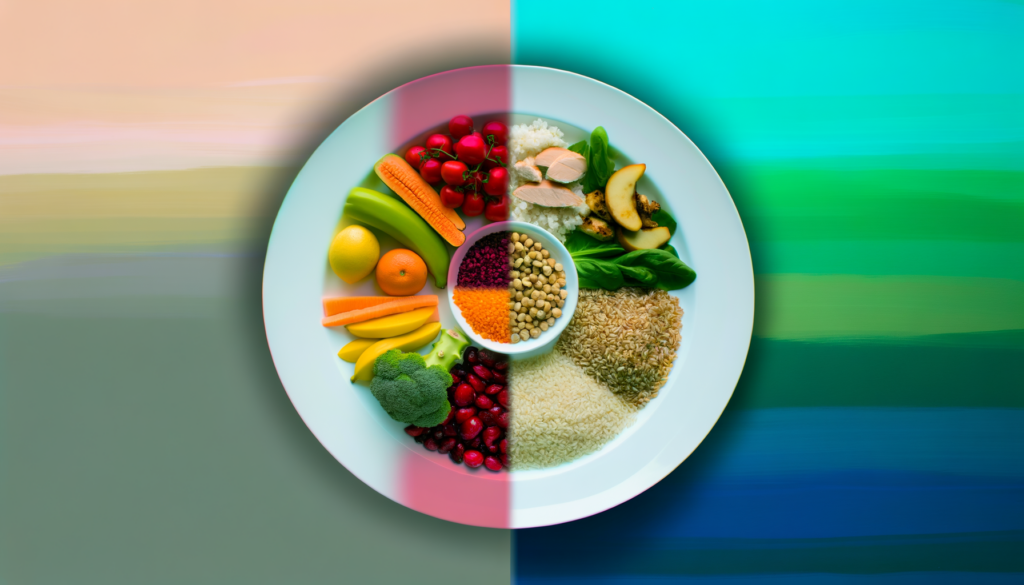Navigating Nutrition for Neurodivergent Children: How Calorie Calculator Cloud Can Help
Nutrition plays a crucial role in the health and well-being of all children, but it is particularly important for those who are neurodivergent, such as those with Autism Spectrum Disorder (ASD) or Attention Deficit Hyperactivity Disorder (ADHD). These children often face unique nutritional challenges that can impact their physical, mental, and behavioral health. In this article, we will explore how the Calorie Calculator Cloud can support the nutritional needs of neurodivergent children.
Understanding the Nutritional Challenges of Neurodivergent Children
Children with ASD and ADHD frequently encounter mealtime challenges, including extreme food selectivity, ritualistic eating behaviors, and tantrums. According to a study by the Marcus Autism Center at Emory University School of Medicine, children with ASD are five times more likely to have these mealtime challenges, which can lead to inadequate nutrition and deficiencies in essential nutrients like calcium and protein.
For children with ADHD, a lack of dietary diversity can result in deficiencies in micronutrients such as omega-3 fatty acids, magnesium, and zinc. These nutrients are crucial for maintaining optimal brain, body, and immune system function.
The Importance of Balanced and Varied Diets
A balanced and varied diet is essential for all children, but especially for those who are neurodivergent. Here are some key components of a healthy diet for these children:
- Fruits and Vegetables: Include a wide range of colorful fruits and vegetables to provide essential vitamins, minerals, and antioxidants. For example, a breakfast smoothie made with milk, spinach, banana, chia seeds, and frozen strawberries can be a nutritious start to the day.
- Whole Grains: Whole grains such as whole-grain toast, brown rice, and quinoa are rich in fiber and can help increase alertness while decreasing hyperactivity.
- Protein and Healthy Fats: Include sources of protein like lean meats, fish, eggs, and dairy products, along with healthy fats from nuts, seeds, and avocados. For instance, a cheese and bean quesadilla with guacamole and salsa can be a nutritious lunch option.
- Omega-3 Fatty Acids: Foods rich in omega-3 fatty acids, such as salmon and walnuts, are particularly beneficial for brain health and development.
Implementing Holistic Eating Strategies
Holistic eating approaches can significantly benefit neurodivergent children by optimizing their nutritional intake and supporting their overall well-being. Here are some strategies to consider:
- Gradual Introduction of New Foods: Introduce small changes into daily eating habits gradually. For example, blending small amounts of high-nutrient foods into meals that your child enjoys can ensure they consume the necessary nutrients.
- Social Eating Experiences: Create opportunities for your child to eat in different social settings or with friends. This can encourage them to try new foods and develop healthier eating habits.
- Consulting with Professionals: Work with professionally trained nutritionists to understand the specific selective eating habits of your child and create a long-term plan for positive future health and well-being.
How Calorie Calculator Cloud Supports Neurodivergent Children’s Nutrition
The Calorie Calculator Cloud is a valuable tool for parents and caregivers of neurodivergent children. Here’s how it can support their nutritional needs:
- Personalized Nutrition Plans: The Calorie Calculator Cloud allows you to create personalized nutrition plans tailored to your child’s specific dietary needs and preferences. This can help ensure they receive the balanced and varied diet they require.
- Meal Planning and Tracking: The tool enables you to plan and track meals, ensuring that your child is getting the right mix of nutrients throughout the day. This can be particularly helpful in managing conditions like ADHD, where regular meal times and balanced meals are crucial.
- Nutrient Deficiency Identification: By using the Calorie Calculator Cloud, you can identify potential nutrient deficiencies in your child’s diet and make necessary adjustments. For example, if the calculator indicates a lack of omega-3 fatty acids, you can incorporate more fish or walnuts into their meals.
- Community Support and Resources: The platform often provides access to a community of users and resources, including tips from other parents and healthcare professionals. This can be incredibly valuable in managing the unique nutritional challenges of neurodivergent children.
Real-World Examples and Case Studies
Several case studies and real-world examples illustrate the effectiveness of using tools like the Calorie Calculator Cloud in managing the nutrition of neurodivergent children.
For instance, a family with a child diagnosed with ASD found that by using the Calorie Calculator Cloud to plan and track meals, they were able to reduce their child’s food selectivity and improve their overall nutritional intake. The child’s behavioral issues and tantrums during meal times also decreased significantly.
In another case, a parent of a child with ADHD used the Calorie Calculator Cloud to ensure their child was getting regular, balanced meals. This helped stabilize their child’s blood sugar levels and reduce hyperactivity, leading to better focus and behavior in school.
Conclusion and Next Steps
Nutrition is a critical aspect of the health and well-being of neurodivergent children. By understanding the unique nutritional challenges these children face and using tools like the Calorie Calculator Cloud, parents and caregivers can provide them with the balanced and varied diets they need.
If you are looking to improve your child’s nutrition, consider the following steps:
- Consult with Healthcare Professionals: Speak with your child’s healthcare provider and a nutritionist to understand their specific nutritional needs and create a personalized plan.
- Use Nutritional Tools: Utilize tools like the Calorie Calculator Cloud to plan, track, and adjust your child’s diet as needed.
- Implement Holistic Eating Strategies: Gradually introduce new foods, create social eating experiences, and involve your child in the meal planning process.
By taking these steps and leveraging the resources available through the Calorie Calculator Plans, you can help ensure your neurodivergent child receives the nutrition they need to thrive.
For more information on how to support your child’s nutrition, visit the Calorie Calculator Cloud and explore the various resources and tools available. Additionally, you can find valuable insights and advice from organizations such as Autism Speaks and the Food for the Brain Foundation.








